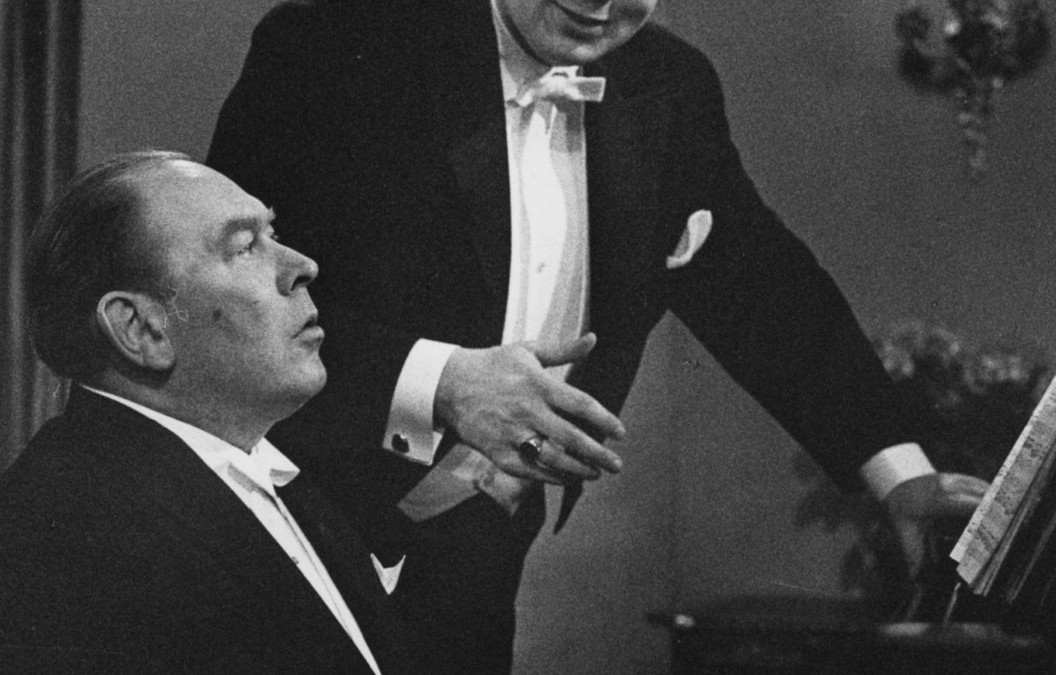by Dr. Vincent Patterson
School Days Greetings! Yes, public schools around DC, MD and VA opened their doors today. Traffic patterns always take on a new cyclical life and suddenly daytime activities are less crowded, fewer lines in the P.O. and bank. As another school year begins we look forward to having our Directors back in their rehearsal rooms and accessible to US! Pip-Pip!! When you’re talking WORLD CLASS to a choir/chorus director and the subject of who’s the BEST pops up, you can state with authority, “Most people agree it’s the German baritone Dietrich Fischer-Dieskau. He passed at his Starnberg, Germany home on May 18. He was 86. His name is synonymous with the “German Art Song.” He is acclaimed as one of the great musicians of the 29th century, which led to such epithets as “the thinking man’s baritone.” His life’s work is well documented on over 1000 recording (twice that of Placido Domingo!). This busy schedule meant for many listeners Fischer-Dieskau became the voice of German music. He used his light, clear voice like an instrument, achieving many subtle shades of tone color along with crisp diction. He returned often to his core repertoire, German art songs, lieder and wrote books about them and recorded them as many as eight times (e.g. Schubert’s “Winterreise”). He was known, too, for opera. He never sang at the MET but was a fixture on German opera stages from early on. Roles included Rigoletto (Verdi), Wolfram (Wagner “Tannhauser”) and for contemporary composers who wrote for him: Benjamin Britten’s “War Requiem.” After a 1992 performance of Verdi’s “Falstaff” singing “All the world’s a joke,” he commented this was the perfect note on which to exit and he canceled all future engagements. Rich illustration of “Know When to Hold Em… ,” eh? He then went full time into writing, and teaching, bringing the same exacting standard to his readers and students. Born in Berlin, 1925, Albert Dietrich was the third son of his namesake father, a classicist and teacher. He was influenced by his piano-loving mother, Theodora. Pater Fischer added the “Dieskau” in 1934 to the family name as a salute to Mater’s forebears. After one semester at a Berlin conservatory, young Dietrich was drafted into the German army, sent to the Russian front and tended cavalry horses. Ending up as a prisoner of war in Italy, his voice was discovered and he entertained troops – so well he was one of the last prisoners returned home. By 1948 he made radio recordings on the American station in Berlin. Then the head of Berlin State Opera heard these and invited him to audition, awarding the role of Posa to him, in Verdi’s “Don Carlo.” His many appearances in Verdi opera led the conductor Ferenc Fricsay to quip, “I never dreamed I would find an Italian baritone in Berlin!” Awards piled up: five Grammies, 19 French Grand Prix du Disque and an unmatched recording catalogue. In the 1995 magazine Opernwelt, he summarized, “The thing that will always occupy me the most is music. I have never been able to live without it and in old age, you shouldn’t abandon that which is most important to you.” How’s that for a life-in-music quote by one of the truly GREATS! If you haven’t heard Fischer-Dieskau’s “Winterreise” you owe it to yourself and those nearest to you – you’ll be beneficiaries of the finest gift: Beautiful Music! Enjoy!! Until next time, have a great week!

